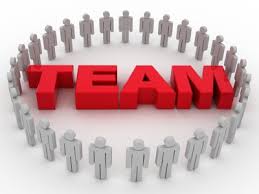Team Experience
How many teams have you been a part of? Think of all the sports you've played, the theatre ensembles you've acted in, fund raising drives you've participated in, or perhaps the businesses you have worked in. I imagine it adds up to quite a few teams.
How many of those teams did you have fun with? Did you enjoy the people and the work, feel involved and productive? Did the team succeed?
Now reflect on the teams where you did not have fun, where people constantly bickered, not much was achieved and you could not wait for the misery to end.
An unpleasant team experience is not uncommon. Do some of these memories resonate?
- The goal was never clear.
- No one really knew who was supposed to do what.
- The timeline was never laid out.
- People seemed to have their own agendas.
- Nobody seemed to listen to each other.
- People often clashed.
- Cliques formed.
- Meetings were long, unfocused and unsatisfactory.
- There seemed to be a need to blame someone.
- Commitments were made but no one was held accountable.
- The focus was on "I" and not "We."
Was any of this fun or productive? If you want to achieve different results, you must take a different path.
Dysfunctionality
Dysfunctional teams are the norm. A key reason is structure. Often teams do not clearly understand the desired outcome. Who is responsible for doing what, by when? What are the ground rules for behavior?
Perhaps the most fundamental requirement that human beings have for working with each other is "trust." There is something in our human psyche that requires trust in order to develop a deep, satisfying and productive relationship.
Steven Covey puts it thus:
"Trust is the glue of life. It's the most essential ingredient in effective communication. It's the foundational principle that holds all relationships."
Now reflect on all your experiences and ask yourself how often did you truly trust your teammates?
Verinder Syal, Author: Discover The Entrepreneur Within
